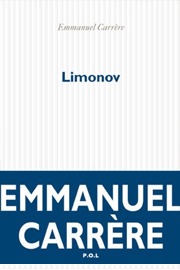The wrong kind of dissident
Russia’s conflicted recent history is writ large in the life of Eduard Limonov.
There’s a special genre of books that «explain» Russia to the West, generally written by French aesthetes or American liberal pundits. They either concern the incomprehensible depths of the Russian soul, or attempt to prove that Communism was the worst thing that ever happened in history, in certain respects not only as bad as but even worse than Nazism. Limonov — a novelised biography by the French author Emmanuel Carrère — has a lucky opportunity to strike at both with its subject, the scandalous Russian-Ukrainian writer and self-appointed revolutionary Eduard Limonov. In recent years he’s found himself part of the anti-Putin opposition movement, but while the likes of Pussy Riot and Alexei Navalny have been celebrated in the West, Limonov is the worst possible candidate for a heroic dissident. However, he’s perfect for Carrère, as his biography makes for an instant, if sometimes ridiculous, adventure novel.
While living as a penniless bum in America in the 1970s, Limonov penned a diatribe against Soviet dissidents, who he saw as the hypocritical wishy-washy darlings of Western liberals. It was republished with applause by the Russian press, raising the suspicion in emigré circles that Limonov was actually a KGB officer. He was neither an ex-Gulag prisoner, like Alexander Solzhenitsyn, nor an amiable genius-aesthete like the poet Joseph Brodsky, yet he was sincere. Brodsky became his lifelong obsession, as he got everything the young Limonov couldn’t have — fame, money, a Nobel Prize and Susan Sontag’s appreciation. Limonov, rather, was a product of the Soviet «proletarian dictatorship». He didn’t think it was perfect, but growing up in a poor family in Kharkov, he could see it meant his mother never had to pay for her gas (she was shocked he had to do so in Paris). As a true believer, he hated Gorbachev, who he saw as part of the middle-class liberalism that would destroy the positive sides of the USSR.
Limonov may be a coward and a scoundrel, but a likeable one up to a point. The son of a low-rank Chekist, he was a delinquent, often beaten up and arrested, worked in a factory, but somehow managed to become a poet, went to Moscow, then «defected» to the West. In New York he lived destitute, developed a taste for sex with black men, and worked as a butler to millionaires, during which he wrote his first Jean Genet-style autobiographical novel, which was eventually published in France after being rejected in the US. In Paris he spent ten years as a modestly popular poète maudit, all this time yearning for fame in his native country. This finally came shortly after the USSR’s collapse when, aghast at the chaos and poverty that ensued, he recast himself as a revolutionary.
From then on, his biography becomes more sinister: after a failed attempt to overthrow Yeltsin, he travelled to the former Yugoslavia, where he became a fanboy of Radovan Karadzić and participated in or at the very least witnessed some of the atrocities perpetuated by Serb paramilitaries. On returning to Russia, he went on to found the National Bolshevik Party, whose ideology mixes elements of Stalinism and fascism (something Limonov does not see as a contradiction in terms) and whose recruits are drawn from the social rubble of his country. Arrested on terrorism charges under Putin, he found himself in an unlikely coalition with anti-regime liberals.
One could say the problem is that Limonov never really grew up out of his juvenile fascination with «strong, real men». Wanting to become one led him to criminals in Kharkov, ex-Gulag prisoners and murderers in Serbia, and far-right ideologues like Alexander Dugin. Wanting to become a famous and admired poet and to be a war hero were two sides of the same coin. But he also remains interestingly loyal to his proletarian roots, vowing to «stay on the side of the weak» — though one could be harsher and say he only rejected dreams of a glamorous career when it became obvious he’d never get what he wanted by literature alone. He’s a terminal narcissist moreover, as he never could write on any other subject but himself. Yet Carrère’s book fails to understand the paradoxes of Limonov’s career, coming across instead as alternately hero-worshipping and hand-wringing.
Limonov remains a mystery, a fascinating asshole, yet with unexplained moments of real evil. The Serbian episode is simply horrendous and there’s no excuse for the fooling around with a Kalashnikov in Vukovar, where thousands of Croats were killed. What was he thinking? Carrère fails, as he’s so starstruck most of the time by his muscular, handsome and womanising character that he refuses to see him as a monster, instead musing on the sense of history and his own experiences in Romania around the fall of Ceausescu. Carrère’s other novels, such as Roman Russe, are partly autobiographical and Limonov thinly disguises the author’s yearning to be like its subject. It offers Carrère an escape from his comfortable intellectual existence and the opportunity to become, if only temporarily, a «real man» like Limonov himself.
«New Humanist», 1 april 2015
 copyleft 2012–2020
copyleft 2012–2020